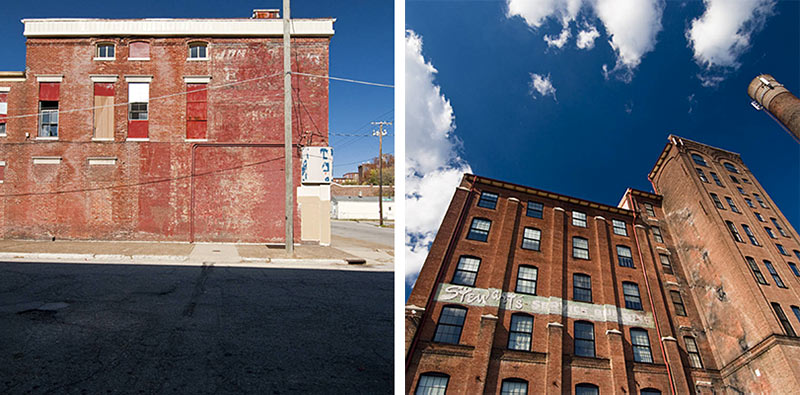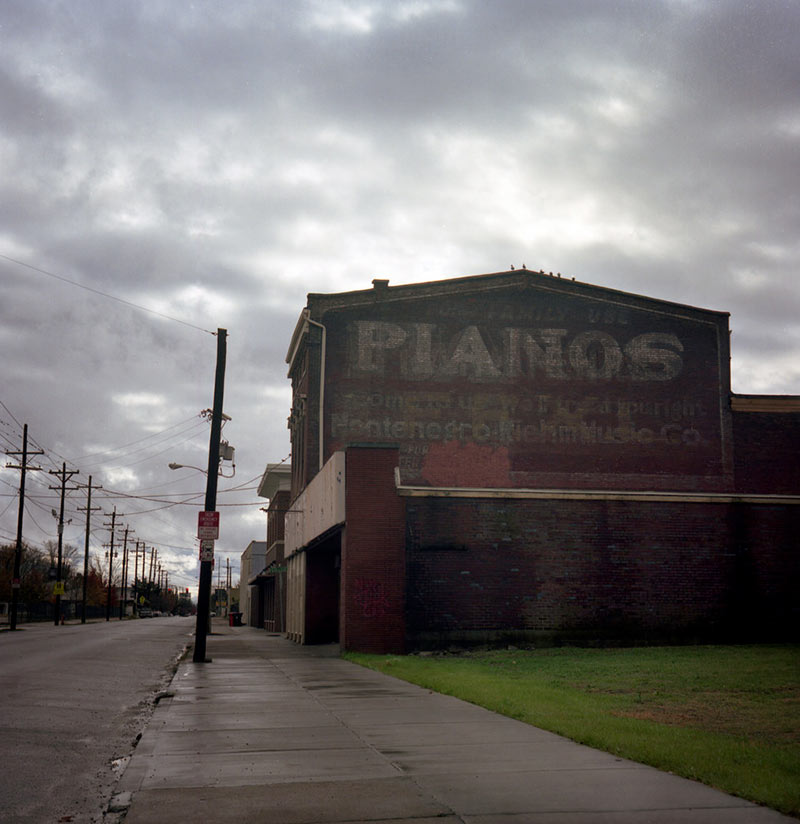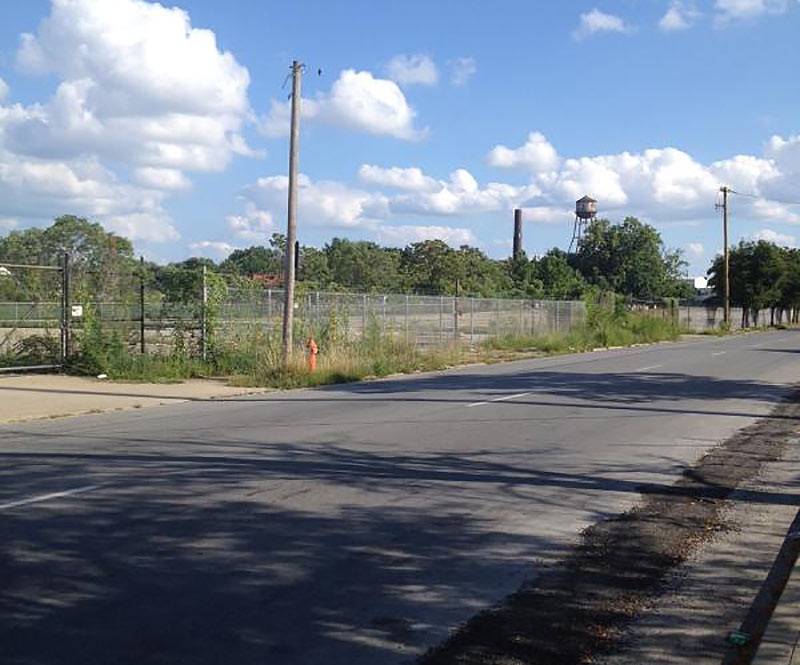You can’t build Rome in a day, but you can certainly change a community.
On Friday, October 17, South Preston Street will be closed from Broadway to Breckinridge to make room for a day-long streetscape revitalization project. GE Volunteers and community partners will unite to transform three blocks of the Smoketown neighborhood into a pedestrian-friendly corridor, complete with bus shelters, a wiffle ball field, benches, new crosswalks, “Smoketown Neighborhood” waste bins, and more than 16 bike racks.
The project was born out of a conversation between GE Volunteers and YouthBuild Louisville, a non-profit organization that provides education, counseling, and job skills to unemployed young adults between the ages of 16 and 24.

“When GE came to us in November 2013, they were interested in doing a large-scale project, and there was still a lot of small projects to be done on the YouthBuild campus,” said Rebecca Katz, a project coordinator at YouthBuild who wrote the initial streetscape proposal for GE.
At that time, YouthBuild was in the second phase of their campus expansion and needed help creating gardens, a permeable brick driveway, and a barn for agriculture classes.
“But we couldn’t come up with enough small projects,” said Katz. “We turned in that proposal and GE came back and they said ‘This is good, but can we do more?’ Then we walked outside, looked up and down Preston Street, and that’s when we realized we could have a larger impact on the community.”

For Robin Burke, project manager at YouthBuild, the streetscape plan is a way to address the needs of the neighborhood and to intentionally connect all those needs with sustainable solutions. “Everything we’ve visioned was something people have already wanted,” said Burke. “The collaboration and the cooperation, it is not without bureaucracy, but we’re able to pull something off with our neighbors, with TARC, with MSD, Louisville Metro Housing Authority, JCPS—these are major partners that were at the table from the beginning. The amount of teamwork that’s being done here is historic.”
Another potentially historic feature of the project is the push to have it all completed in a single day. Well, not all of it. On October 31, two weeks after the streetscape project, Louisville Loves Trees and Future Farmers of America will spend the entire day planting trees in the newly constructed wells—dropping them in all at once.

“The tree-planting component is coming through the assistance of an MSD Urban Reforestation Grant,” said Burke. “So you see how things are built up one after another, visions begin to overlap and it gains movement.”
For anyone who’s ever traveled down Preston Street through Smoketown, the need for a renewed streetscape should be obvious: the street currently has no trees, more than 20 bus stops but no bus shelters, and few curb cuts along the sidewalk to allow strollers and wheelchairs to safely ramp onto the street.
“We see this type of thing every morning when we arrive to YouthBuild and realized that there is something that needs to be done,” said Burke, who attributed the condition of the street to years of social and economic hardship.

A neighborhood named for the large number of smoke-producing kilns during the brickmaking era, Smoketown stands as the only community in Louisville founded by black people after the Civil War. As white flight began in the 1950s, Smoketown was among the many neighborhoods that suffered from disinvestment, which led to high unemployment rates, which led to high crime rates, which led to urban neglect, resulting in disregard for street and sidewalk infrastructure that can be seen today.
“I’ve worked with Kentuckians for the Commonwealth and Network Center for Community Change and really just got to know my neighbors here,” said Rebecca Katz, referring to her involvement in KFTC’s Vision Smoketown initiative. “What I realized was that a lot of things our neighbors have wanted for years still hasn’t happened.”
Burke mentioned that one of the key goals of the streetscape was to nurture the area for residents, particularly for those moving back to Smoketown after the reconstruction of the Sheppard Square housing development.

Burke and Katz also brought up the point that The Franciscan Kitchen, located just a block away from the YouthBuild campus on Preston Street, is a neighborhood asset that can act as a catalyst for change in the area.
“That’s been really central to the change we wanted to see because we see the lines every day,” said Burke. “They serve so many people every day—400 to 500 people a day—and we’ve become friends with them, with the people who wait in line.”
According to Katz, YouthBuild students often serve meals and volunteer at The Franciscan Kitchen and many have noticed that there are often no areas outside for people to sit, no trees to shade those who are waiting in line for food, and no garbage cans anywhere nearby.
However, in addition to the new trees, “Smoketown Neighborhood” bins, and benches from the streetscape project, YouthBuild will be supporting The Franciscan Kitchen’s site expansion, assisting with landscaping and construction.
“There are so many resources and so many resilient, strong people here,” said Katz. “I just think about all of the soup kitchens and all the homeless people—which there are a lot of in this neighborhood as well – but the people take care of them. We serve them. They’re safe here.”



